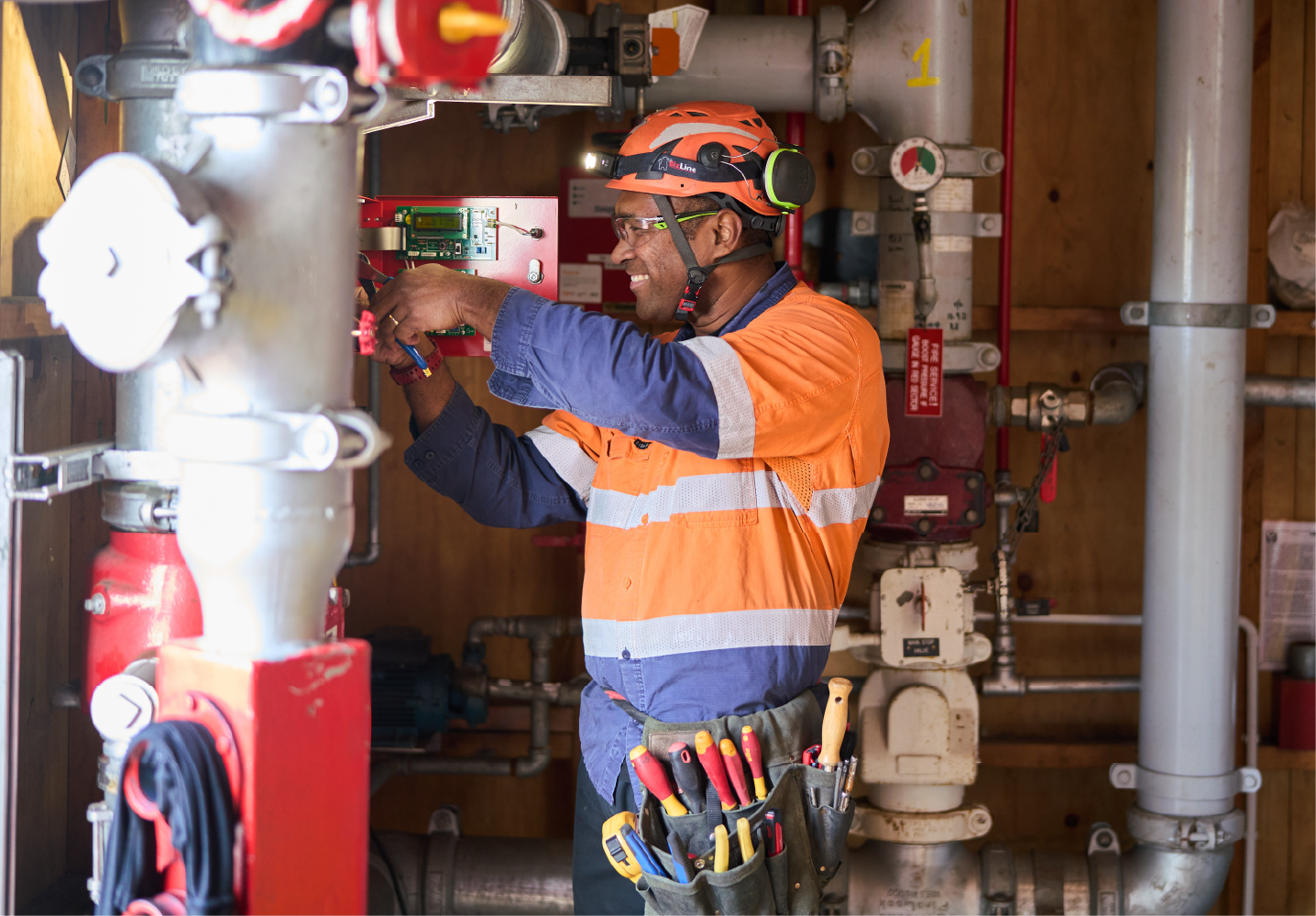
Competenz is here to support you through every step of the apprenticeship journey. From setting up training to resolving issues, our team works alongside you to help your apprentice succeed and your business grow. This guide explains where to go for help and what to expect.

Providing great supervision and mentoring is one of the most important parts of supporting an apprentice. It’s more than showing them how to do the job—it’s about helping them grow their confidence, build good habits, and make steady progress toward their qualification.
Your Competenz training advisor will work with you to plan structured on-the-job learning and provide practical tips to guide your apprentice day-to-day. They can also help you shape feedback and set clear expectations.
For more detailed strategies—including using the GROW model for coaching conversations and setting SMART tasks—you’ll find extra support in the Mentoring Guide for Employers later in this pack. It’s a great tool to help you bring out the best in your apprentice.
Need help tracking your apprentice’s progress? Your training advisor can support you with goal setting, milestone reviews and giving constructive feedback. They’ll also guide you through completing assessments.
If you have concerns about your apprentice’s progress in their training, such as falling behind on assessments or struggling with learning, your Competenz training advisor is here to help. They can work with you and the apprentice to identify the issue and agree on a plan to get things back on track.
If your concerns are related to employment matters—such as behaviour, attendance, or attitude at work—these should be handled through your usual HR processes or discussed with your HR representative.
Not sure where your concern sits? You’re welcome to check in with your training advisor—they’ll help clarify.
Pastoral care is about supporting the whole person, not just their learning journey. It includes being aware of anything that might impact an apprentice’s ability to train and work effectively, such as confidence, motivation, health, family responsibilities, or financial pressure.
In New Zealand, pastoral care is a shared responsibility between the employer and Competenz. Under the Education and Training Act, we’re both committed to helping apprentices feel safe, supported, and equipped for success.
As an employer, you play a crucial role. Regular check-ins, open communication, and building a strong support network can make all the difference. We recommend assigning a workplace buddy or mentor—someone approachable who can guide them through their first few weeks on the job.
If an apprentice is showing signs of struggling, reach out to your Competenz training advisor. Together, you can explore practical solutions—whether it’s extra study support, regular catch-ups, or connecting the learner with wellbeing services. Competenz can help link them to resources like study groups or external support options. You’ll find more details in the apprenticeship section of this pack.
If an apprentice is showing signs of stress, burnout, or other challenges, it’s important for the employer and Competenz Training Advisor to stay in close contact and work together on potential solutions. Your Training Advisor can check in with the learner and help connect them to the right support.
Every apprentice learns differently. If your apprentice has a learning difficulty or needs extra support, Competenz can help you adapt the training approach or arrange additional resources.
New Zealand’s workforce includes people from a wide range of cultural backgrounds. Each brings their unique strengths, values and ways of working. Creating an inclusive environment helps apprentices settle in, feel supported and succeed in their training.
In practice, this could mean:
These aren’t major shifts — often it’s just small changes in how we listen, plan and respond that make a big difference.
You don’t need to know everything about every culture. What matters is being respectful, open-minded and willing to learn. When people feel welcomed and understood, they’re more likely to stay engaged, share their ideas and take pride in their work. That’s good for them and good for your business.
If your apprentice needs time off or is facing personal challenges, let your training advisor know. They’ll help adjust the training plan and ensure the learner stays supported during time away.
As an employer, you're responsible for meeting legal obligations related to employment, health and safety, privacy and training agreements. Competenz helps by making sure you’re aware of these requirements and by supporting you to work through common questions.
Your training advisor can guide you to the right resources, explain what’s typically expected, and help you understand how these obligations relate to apprenticeship training. However, for specific legal questions such as employment disputes or contract issues, we recommend seeking advice from a qualified employment lawyer or trusted HR professional.
As the employer, you're responsible for meeting your obligations under the Health and Safety at Work Act 2015. That includes providing a safe working environment for your apprentice.
Apprentices also have a duty to take reasonable care of their own health and safety, and to avoid putting others at risk.
Competenz provides training modules and checklists to help apprentices learn safe practices, but we don’t provide health and safety advice.

You’re required to keep training records and protect learner privacy. If you’re unsure what to collect or how to store it, your training advisor can explain best practices and help you meet obligations around personal information and data privacy.
Competenz offers free support services to help you train with confidence. That includes mentoring guides, progress tracking tools, wellbeing support and regular check-ins with your training advisor.
Apprentice having trouble logging into eLearning? Our Service Hub team is just an email or phone call away. Your training advisor can also guide you through using the system if you're unsure.
If a concern arises between you and your apprentice—or with Competenz—please raise it early. Our complaints process is fair and confidential, and your training advisor or regional manager can guide you through it.
Please follow the processes outlined here [https://www.competenz.org.nz/contact-us/competenz-complaints-policy-and-process]
Hiring an apprentice isn’t just about filling a role. It’s an investment in the future of your business and your industry.
Many employers say training an apprentice brings real satisfaction. You’re passing on your knowledge, shaping someone’s career and building a stronger workforce.
According to the International Labour Organization (ILO), while there are some upfront costs, apprenticeships deliver increasing returns over time. Most businesses see clear productivity gains by Year 3. Then by Year 5, the investment has usually paid for itself.
From then on, you’ve got a fully trained, confident team member who knows your business, fits your culture and adds real value.
Apprenticeships don’t just build skills — they build loyalty, capability and pride.

A good start can make all the difference. Many apprentices are already a part of your team before they start formal training. Onboarding is your chance to help them connect the dots between work and learning — and feel supported every step of the way.
